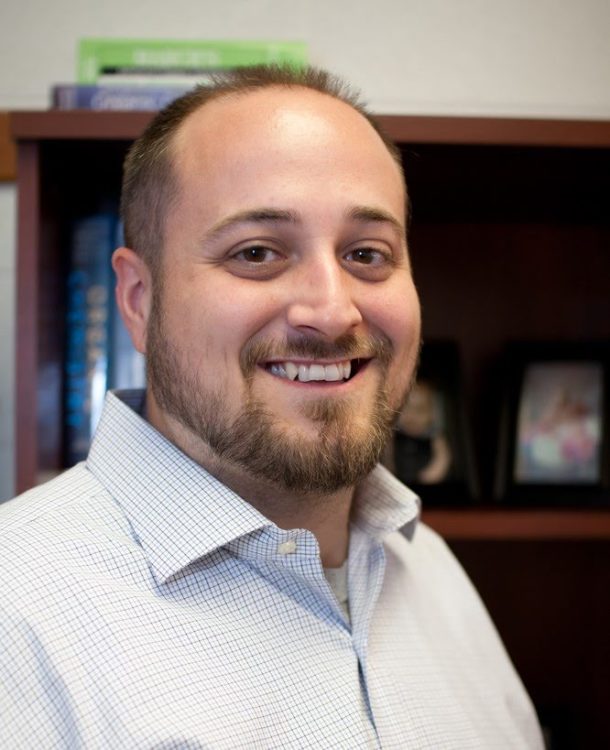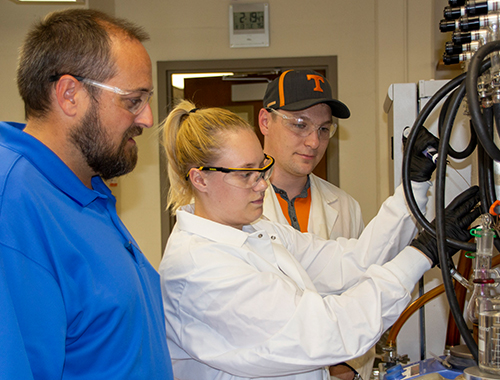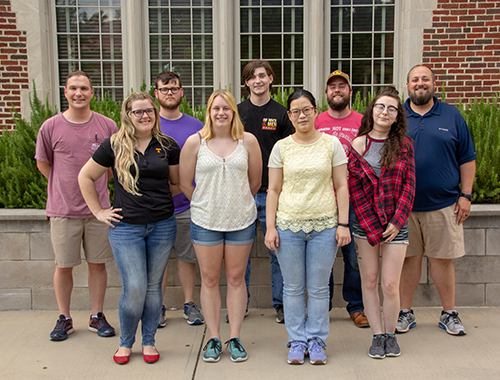 Unlocking the Potential of Polymers
Unlocking the Potential of Polymers
Did you know that the thin plastic garment sleeves protecting your dry cleaning hold the potential to be bullet proof? It all depends on tweaks to the plastic’s structural properties at the molecular level – and that’s University of Tennessee Associate Professor Brian Long’s specialty.
In the Department of Chemistry, Brian’s research centers around the creation and chemical manipulation of polymers to address fundamental scientific problems that have a real-world impact. It’s a technical field of study, yet the focus couldn’t be more common: plastics. While not all polymers are plastics, all plastics are polymers. Brian’s research on plastics and other polymers falls largely into two buckets: (1) developing new chemistries that enable the construction of polymers, known as polymerization catalysis; and (2) developing advanced polymeric materials with targeted functions.
 In each of these areas, UTRF is currently exploring market opportunities for commercialization of two of Brian’s innovations, emphasizing important applications for public health and consumer goods.
In each of these areas, UTRF is currently exploring market opportunities for commercialization of two of Brian’s innovations, emphasizing important applications for public health and consumer goods.
The first innovation concerns a major advancement in 3D printing: Brian and his team have developed a radical new approach to fabricating the world’s most widely used and produced forms of plastic. Known as polyolefins, these incredibly versatile plastics make up household staples such as milk jugs and trash bags, as well as high-value products such as medical implants and devices. They’re tolerant of a wide range of temperatures and can possess a multitude of mechanical properties – recall the bullet-proof dry cleaning bag, for instance.
Yet industry currently lacks a practical way to 3D print these polyolefins. This need encouraged Brian and his colleagues to take a new approach to the dilemma, looking at it from a chemistry perspective. Together the team developed a new method of polymerization catalyst activation that has enabled the 3D printing and patterning of this essential plastic for the first time using light.


Manipulating polymers at the molecular level also has enormous potential to mitigate climate change. Brian and his colleagues are in the process of developing novel classes of gas separation membranes, which simply look like sheets of clear plastic to the layman’s eye. But the researchers have constructed the plastic with a particular molecular structure to allow certain gases to pass through the sheet while blocking others. When carbon dioxide and natural gas impurities pass through the plastic, they can be separated and contained. “Compared to traditional carbon dioxide capture and separation techniques, this process is sustainable, offers a significant reduction in energy costs, and is more environmentally benign,” Brian explains. The innovation has enormous implications for the reduction of greenhouse gases emitted by coal and natural gas power plants – two of the U.S.’s most prolific producers of carbon dioxide. While still at laboratory scale in the development process, the technology is being evaluated by one of the world’s largest petrochemical companies.
“The innovation not only addresses a current market need, it opens additional channels of research to tackle a global issue,” comments UTRF Licensing Associate Nghia Chiem. “UTRF is proud to partner with researchers like Brian who not only strive to develop technologies with commercial potential but look to positively impact public and environmental health.”
Brian attributes his career to the extraordinary influence of his high school chemistry teacher in North Georgia, Jan Allen. From 10th grade on, he was hooked on chemistry and its potential to develop methods and products that address problems in creative ways, or as he jokingly simplified, “make cool molecules that do fancy things.” In addition to his evident enjoyment of chemistry, Brian highly values his colleagues and co-collaborators that partner with him in his research, emphasizing:
“These innovations would never be possible without the tireless efforts of the talented graduate students, undergraduates, and postdoctoral researchers that I have the pleasure of working with at the University of Tennessee.”